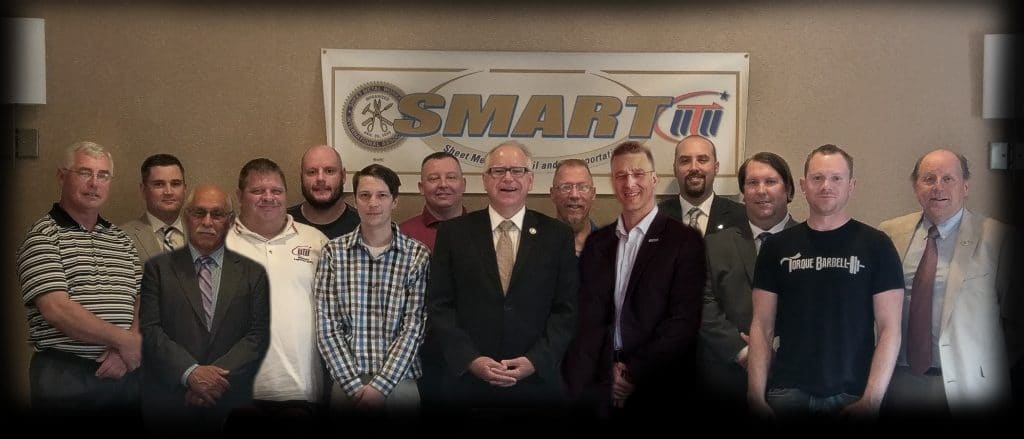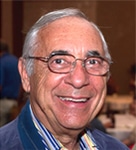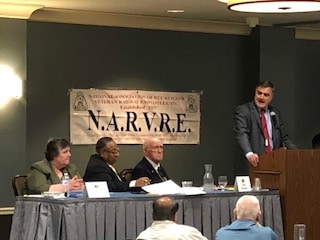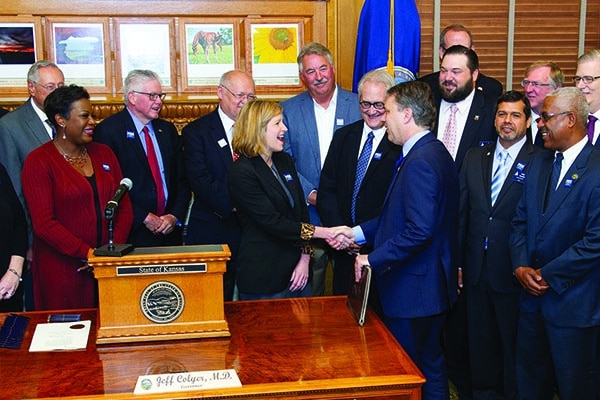The Switching Operations Fatality Analysis (SOFA) Working Group in June issued its latest updates on switching fatalities and severe injuries for the entirety of 2017 and for the first quarter of 2018.
According to SOFA, there were three switching-related fatalities and nine amputations as a result of switching accidents in 2017. There were 68 “severe injuries,” which SOFA defines as potentially life-threatening; having a high likelihood of permanent loss of function, permanent occupational limitation or other permanent disability; likely to result in significant work restrictions and resulting from a high-energy impact to the human body.
The number of severe injuries and amputations in 2017 exceeded 2016’s totals of 47 and seven, respectively.
SOFA reported that train accident reports increased to 1,686 in 2017 over the 1,671 in 2016. However, SOFA said that human factor accidents decreased to 639 in 2017 from the 643 reported in 2016.
In the first quarter of 2018, SOFA said there were two amputations, 20 severe injuries and no switching fatalities. SOFA reported that there have been 416 train accidents and 154 human factor accidents thus far in 2018.
SOFA is a voluntary, nonregulatory railroad safety partnership consisting of representatives of SMART Transportation Division, the Brotherhood of Locomotive Engineers and Trainmen (BLET), Federal Railroad Administration (FRA), Association of American Railroads (AAR) and the American Short Line and Regional Railroad Association (ASLRRA) that has a goal of zero switching fatalities achieved through education and nonpunitive interactions.
Click here to go to our SOFA page and read SOFA’s full reports.
Author: bnagy
A victory for safety was achieved in June when the Federal Railroad Administration’s (FRA) Railroad Safety Board denied a request by the Association of American Railroads (AAR) to lengthen the “off-air” restriction from four to 24 hours for required brake tests and inspections.
AAR had written to FRA in December 2017 seeking a petition for waiver, arguing that safety would not be affected and that lengthening the off-air restriction would bring U.S. requirements in line with Canada’s 24-hour off-air restriction.
However, SMART Transportation Division President John Previsich and union leaders from the Brotherhood of Locomotive Engineers and Trainmen (BLET), Brotherhood of Railroad Signalmen (BRS), American Train Dispatchers Association (ATDA) and Brotherhood Railway Carmen Division (TCU/IAM)’s letter in February urged FRA officials to deny the request.
The waiver would be unenforceable and too far-reaching, the unions argued.
“Despite the carriers’ safety assurances, the labor organizations have concerns with this far sweeping request for waiver given the fact that it will cover AAR’s entire membership,” the unions said. “To allow such a sweeping waiver request to go forward, each railroad would have to demonstrate that the cars on their railroad had state of the art brake valves, dryers and automatic moisture drainage. It is hard to imagine FRA granting such a ‘one size fits all’ waiver to each of AAR’s member railroads.”
The FRA board agreed with SMART TD and the other rail unions, with Robert Lauby, FRA Associate Administrator for Railroad Safety, saying in the agency’s June 19 denial letter that the petition was better considered as part of the rulemaking process.
The board also said that AAR failed to prove that the changes would not have an adverse effect on safety.
“Based on its review and analysis, the board concluded that granting the requested relief would not be in the public interest or consistent with rail safety,” Lauby wrote.
Lauby also said in the letter that the data provided by AAR to support its petition did not cover the variety of real-world conditions encountered while running trains.
“Absent more detailed data demonstrating that safety would not be compromised, the Board concluded that the waiver request was not justified,” Lauby said.
Time to connect!TD Connect and the eBill system are coming your way. Will you be ready?
To view the Member Variance Report for your local in WinStabs, go to Member Records > Member Report Menu > Member Variance (or Member Due/Refund in versions prior to 5.09)
| Questions Visit the S&T Tools page on the SMART TD website for guidance on getting the job done! Still not sure? Call the Field Support Help Desk at 216-227-5444. Drop-in help desk hours are 9a-5p (Central Time) M-W-F. Help desk appointments can be scheduled in advance for Tuesdays, Thursdays, weekends and evenings. Call or email fieldauditor@group. Important dates • By June 15 — Deposit and pay CT-1 taxes (rail Locals): https://www.eftps.gov/eftps/ For more info: SMART TD guide to paying Form CT-1 taxes • By June 15 — Deposit and pay 941 taxes: https://www.eftps.gov/eftps/ For more info: SMART TD guide to paying and reporting Form 941 taxes • By June 20 — SMART TD billings due at office • July 2-4 — SMART TD Regional Meeting in Seattle, Wash. |
WORKSHOPS PLANNED IN SEATTLE
We’re mere weeks away from the first of two SMART Transportation Division regional meetings. Both the July meeting in Seattle, Wash., and the August meeting in Hollywood, Fla., will present great educational opportunities to help strengthen our union and build camaraderie among our members.
The first meeting, July 2 through 4, is at the Westin in Seattle, and informative workshops for secretaries and treasurers have been planned.
July 2
- 9 to 10:30 a.m.: A preview of the new SMART TD eBill system will be presented by Administrator Matt Dolin and Field Audit Support Coordinator Katy Andrijowych.
- 10:45 a.m. to 12:30 p.m.: Training the Local: Protecting You, Your Union and Your Local.
- 1:30 to 3:30 p.m.: A workshop on local disbursements and approval will be presented by Field Auditors John Purcell, Justin Fougerousse and Mike Araujo.
- 3:45 to 5:30 p.m.: An informational session about Railroad Retirement geared toward local treasurers will be presented by Laretta Earls-Rozelle and Melodi Sapyta.
- 3:45 to 5:30 p.m.: One-on-one assistance available on billing and member variance is available from TD field auditors.
July 3
- 9 to 10:30 a.m.: Training the Local: The roles of officers and business of unions.
- 10:45 a.m. to 12:30 p.m.: Field Auditors John Purcell, Justin Fougerousse and Mike Araujo will present on local payroll taxes and reporting.
- 1:30 to 3:30 p.m.: Purcell, Fougerousse and Araujo will hold a workshop on payroll deductions and member variances.
- 3:45 to 5:30 p.m.: Department of Labor presentation about running local elections.
- 3:45 to 5:30 p.m.: One-on-one assistance available on billing and member variance is available from TD field auditors.
July 4
- 9 to 10:30 a.m.: Training the Local — a workshop that features a mock local meeting.
- 10:45 a.m. to 12:30 p.m.: Field Auditors John Purcell, Justin Fougerousse and Mike Araujo will have a presentation about WinStabs, reconciliation and reporting.
Details about and a schedule of S&T workshops at the Hollywood meeting will be in the July edition of Making Cents. We look forward to seeing you at the workshops!
ASK AN AUDITOR
I have been having some trouble with a member transfer for almost three months. I have sent three transfer requests with no response from the other Local’s S&T. This is a member request and he has contacted me several times with his concerns why this transfer has not been handled. Can you help?
The processing of member transfers among Locals falls under the duties of the S&T but can be complicated since both S&Ts need to work together. People lead busy lives, and sometimes it’s difficult to coordinate one another’s schedules to communicate.
There are two types of transfers as described in Article 21B, Section 47 of the SMART Constitution: A 90-day transfer because of an assignment to a different craft and a member-requested transfer.
The SMART TD Guide for Maintaining Member Records and Billings, available on the S&T Tools section of the SMART Transportation Division website, goes into more detail about the procedure:
A written request must be submitted to the old Local from the member/new Local. Treasurers from both Locals should open the lines of communication to work through the request. If the transfer request is proper, the Treasurer from the old Local is to issue a T-47 transfer certificate to the new Local. (Reference pages 174-175 and 202 of the WinStabs manual for guidance on transfer requests and certificates from WinStabs.) The old Local must respond to the request in some fashion. Do not ignore transfer requests.
If the transfer request is improper, the old Local must supply the new Local with a reason for the denial. Again, communication between the Locals is key to ensure that both Locals receive the dues, assessments and premiums they are eligible for from the member. Understanding of the application of payroll deductions is essential.
Members who go to BLE are not transferred, instead their membership is suspended.
A reasonable time period to either put such a transfer through or to deny a transfer is seven days. Transfer requests should be responded to and must not be ignored.
If a transfer request is denied, the old Local must provide the new Local with a reason why it was denied. Payroll deductions shouldn’t be started by the new Local until a T-47 certificate has been received, and dues should still be collected by the old Local until the transfer request is complete.
The scenario you are describing appears to be excessive, but we have to ask whether you’ve only tried to contact the other S&T through email. Email is convenient, but it’s easy for something to be either deleted or just fall by the wayside as newer emails pop into an S&T’s inbox. Our suggestion is to try another old-fashioned way of getting in touch – pick up the phone and call the other S&T. We’re all part of the same union and working for our members – you’ll get an answer quicker, and a simple call could establish a relationship that helps bring your two Locals closer together.
To submit questions to Ask an Auditor, email fieldauditor@group.smart-union.org.
A pair of tours has been finalized on July 1 and 2 for attendees of the 2018 SMART Transportation Division Regional Meeting in Seattle.
Day 1 (July 1): Puget Sound whale watching tour
Attendees will be picked up from the Westin Hotel downtown at 8:15 a.m. Sunday, July 1, and taken to Edmunds, where they will board a ship onto Puget Sound.
On the sound, there are three resident orca pods and there will a chance of seeing humpback whales, gray and minke whales, porpoises, seals and sea lions. The tour includes a boxed lunch and attendees will be back at the hotel by 3:30 p.m. Guests are advised to bring a light jacket in case it’s chilly on the sound.
Day 2 (July 2): Seattle city tour
Board a luxury motor coach to see the Emerald City’s highlights! Guests will enjoy an informative tour of the city from a Seattle perspective, hearing history and interesting stories about this unique metropolis. The tour begins at 9 a.m. in the downtown core, including the chance to explore Chihuly Gardens and Glass in Seattle Center, the Pike Place Market and the Olympic Sculpture Park before the tour ends at the Ballard Locks.

Tour costs are $35 per person for registered guests of the regional meeting and $75 per person for guests who are not registered for the regional meeting. Follow this link to register online or you can download a fillable PDF version of the regional meeting registration form.
Kansas State Legislative Director Ty Dragoo reported that the hard work of his legislative board has paid off with the Kansas Legislature passing and Republican Gov. Jeff Colyer signing May 16 the House Substitute for SB 391, establishing the Joint Legislative Transportation Vision Task Force.
“We would like to take this opportunity to thank all those legislators who supported this important step to building a vision for transportation in Kansas with labor at the table,” Dragoo said. “We greatly appreciate the assistance of all of those that voted in favor to pass the task force legislation.”
The task force’s purpose is to evaluate the current condition of the Kansas transportation system; solicit local input on projects; evaluate current uses of the state highway fund; evaluate current transportation funding and determine whether funding levels are sufficient for current and future needs; identify additional necessary transportation projects; make recommendations regarding the needs of the state’s transportation system in the future; and make recommendations on the future structure of the state highway fund as it relates to maintaining the state’s infrastructure.
The bill also includes a list of organizations, including SMART Transportation Division and the AFL-CIO, that will sit on the task force and help to formulate a 10-year plan for the state’s transportation system.
“SMART TD looks forward to being a part of providing the task force with the critical information that they will need to build a vision for the future of the infrastructure system in Kansas,” Dragoo said. “This is the first time in our board’s history that our union will be recognized and enshrined in Kansas statute as a stakeholder in transportation planning for this state.
“Brothers and sisters, that is not by accident. That is our hard work paying off.”
A PDF of the final version of the bill is available on the Kansas State Legislature website.








